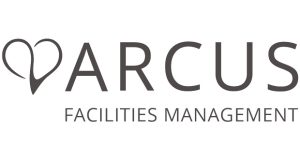Blog from Rory Murphy, Commercial Director, VINCI Facilities
 This year’s RICS/IFMA flagship conference for Facilities Management took the brave step of changing its name from the ‘Strategic FM’ conference to a more inclusively titled ‘Integrated Property Services conference’ undoubtedly raising a few eyebrows amongst those conference season commentators across the FM fraternity.
This year’s RICS/IFMA flagship conference for Facilities Management took the brave step of changing its name from the ‘Strategic FM’ conference to a more inclusively titled ‘Integrated Property Services conference’ undoubtedly raising a few eyebrows amongst those conference season commentators across the FM fraternity.
Whilst the name change caused some debate in the first instance, from a personal perspective it has made me consider how we position and present our profession in the coming years. The FM sector and the built environment in general is changing rapidly in the face of increased digitalisation and new more flexible ways of working, so surely we will need to adapt how we talk and represent our sector to reflect this.
As FM professionals we can choose to integrate or isolate. We can collaborate and share ideas with like minded professionals or we can talk incessantly at conference venues to ourselves, about ourselves, for ourselves.
As the world becomes more interconnected and the complexity of the built environment adapts and develops to support new ways of working and new demands, our profession should surely come to the fore. The principle of having an integrated conference against a backdrop of an integrated built environment sounds like a step forward.
The various professions within the built environment remain incredibly traditional. Despite the increasing developments in BIM, digital twinning, significant advances in asset management and a developing understanding of the human effects of building on people, we all still like to work in our professional silos. Collaboration in the first instance would be a good step, genuinely thinking about the buildings in use when we make initial design decisions is surely a given.
Breaking down the barriers will not come easily, the RICS itself has 20 professional pathways and facilities management is just one of them. Encouraging the quantity surveyors or the building surveyors to collaborate and integrate with the residential surveyors let alone the facilities management surveyors seems like a stretch.
Outside of our Surveying fraternity we have the architects and engineers that design and construct much of our buildings and infrastructure, we have specialist trade groups across a whole range of disciplines. At the absolute beginning of any building process we have the clients and customers who will need to know the efficiency and costs in use of the assets they are procuring. More importantly the impact on wellbeing and productivity that the newly designed built asset will drive should also be on any clients wish list at design stage.
The digital lifecycle of the built environment may well be a catalyst for this integration and collaboration to accelerate. The management information and data that now drives significant business decisions does not recognise these traditional silo’s. As we procure, design, build and operate the assets of the future then the digital heartbeat of those projects will be the golden thread that runs throughout the whole lifecycle. Clients will demand information about their property that will require specific intervention and action at design stage so those operating the asset will need to integrate closely with those designing and building the asset to secure the right outcomes.
Integration and greater collaboration amongst professionals within the built environment has long been championed, the sentiment and will has never seemingly been strong enough to make these relationships truly effective. Ultimately it may well be technology and necessity that forces this integration so the RICS/IFMA conference may have come just at the right time.




